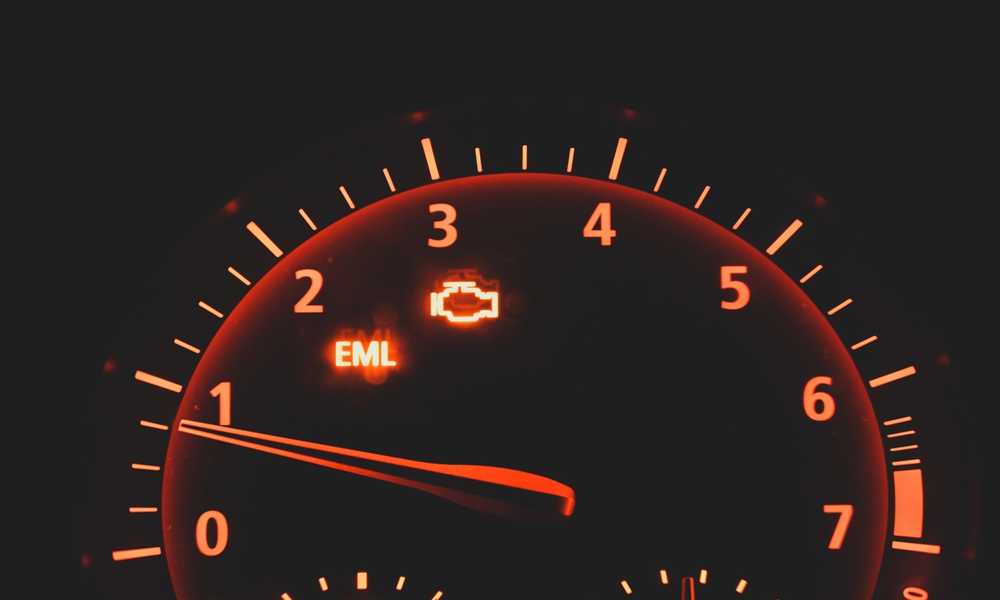Is there anything that makes you more nervous then when the car flashing check engine light then stops? It’s like a signal that needs to be paid attention to, but what does it signify when the light suddenly stops blinking? Is this an ongoing problem, or simply a temporary hiccup? Check engine lights that seem to be acting on their own will be the subject of this in-depth blog post. Put on your seatbelts, because we’re about to learn the truth about this mysterious event!
What does it mean when a check engine light flashes and stops?
The check engine light is like a tiny red flag flying in your face, telling you to pay attention to it. But what does it signify when the light blinks once and then stops? That something was wrong with the system temporarily is a distinct possibility. It might be something as easy as a loosened gas cap or a brief dip in performance.
A problem with the sensors that monitor different parts of your car is another possible cause of the blinking check engine light. As a result of sensor errors or incorrect signals sent to the onboard computer, the light may flash briefly before returning to its normal pattern.
But a blinking check engine light can mean something more serious is going on under the hood. It could be an early warning sign of a serious problem, such as the spark plugs or ignition coils failing. Or maybe your fuel injection or catalytic converter is malfunctioning.
Even if the warning light stops blinking on its own, you shouldn’t disregard it. It might not seem like a big deal now, but ignoring a problem might lead to expensive repairs down the road.
Always visit a professional mechanic if you have any doubts about the cause of your check engine light blinking and then going out. They have specialised diagnostic equipment to decipher error codes recorded in your car’s computer system, which can shed light on the cause of the initial alert.
Preventative maintenance is essential for keeping your car in good working order and avoiding breakdowns on lengthy trips or in the mornings when you’re in a rush to go to work. Don’t ignore the warning signal just because it’s a tiny light.
Why check engine flashes and then stop when accelerating?

The blinking of the check engine light while driving along might be rather unsettling. It’s already confusing enough that it stops blinking as you begin to accelerate. What causes this, then, please?
When accelerating, the flashing check engine light may stop, which could indicate a problem with the ignition system. Acceleration increases the engine’s need for fuel and spark. Misfires during acceleration can trigger the check engine light if the ignition coils or spark plugs are malfunctioning.
Another possibility is a broken sensor. Several sensors in your vehicle constantly assess the vehicle’s status. A temporary check engine light flash may occur if one of these sensors identifies an issue during acceleration.
Problems with the fuel supply or emissions hardware could also be a factor. Possible causes of rough idling and hesitation during acceleration that might trigger the check engine light to flash momentarily before staying on include a clogged fuel injector or a faulty catalytic converter.
Just because the lights stop blinking doesn’t mean there isn’t a problem; should you have access to a mechanic or an OBD-II scanner, get to the bottom of it as soon as possible. If you disregard these red flags, you may end up having to make more extensive and expensive repairs down the road.
In conclusion (without stating so explicitly), a flashing check engine light that stops when accelerating can indicate several potential issues within your vehicle’s systems, including problems with ignition components like coils and spark plugs; malfunctioning sensors monitoring performance; or issues related to fuel delivery and emissions control systems like clogged injectors or failing catalytic converters; promptly addressing these concerns will help keep you safe on the road.
Why is your check engine flashing then stops after hard acceleration?
A misfire in the engine is one probable cause of the check engine light flickering and then stopping during rapid acceleration. When you push your automobile to its limits, you put extra strain on the engine, which can cause issues like a mismatch in the fuel-air combination or a misfire. This temporarily halts the combustion process and prompts the warning light to illuminate.
A problem with your car’s sensors or emissions system is another possibility. These parts are vulnerable to failure under the stress of rapid acceleration, which can momentarily disable the vehicle and activate the warning system. Malfunctioning oxygen sensors and catalytic converters are frequently to blame.
It’s also important to remember that intense driving circumstances can trigger momentary shifts in the operation of certain car systems. These shifts may cause sensor readings that briefly activate the check engine light.
See a technician if this problem persists or if you notice any other symptoms, such as a decrease in performance or strange noises. Any underlying problems can be identified and treated before they become more severe.
The temptation to ignore a flashing check engine light since it stops after heavy acceleration is understandable; nonetheless, it is always best practice to have the problem checked out as soon as possible. Potential faults, if ignored, could escalate into much bigger ones in the road, necessitating expensive repairs.
What if check engine light blinks then stops when going uphill?
The sight of your check engine light flashing as you drive upwards might be rather frightening. What does it signify, though, when the lights stop flashing? Explore this situation with me.
If your check engine light is blinking on a steep incline, a faulty oxygen sensor may be to blame. When going uphill, the engine may experience a temporary misfire or imbalance in the air-to-fuel ratio, and the sensor will warn you of this.
The fuel system is another possible cause. Driving up steep hills uses more gas than driving down them. There may be temporary issues that set off the check engine light if the gasoline pump or injectors are malfunctioning.
The check engine light flashing on steep inclines may indicate faulty ignition coils or spark plugs. These parts are crucial for effective combustion and reliable operation under stress. Misfires, which cause the warning light to come on, might be caused by worn-out spark plugs or faulty ignition coils.
Do not disregard a blinking check engine light just because it stops while travelling uphill. It may look like things are back to normal on the surface, but there may be a deeper problem that hasn’t been addressed. You should get your car checked out by a professional mechanic as soon as feasible.
Keep in mind that the specifics of your scenario will change depending on variables like the year, make, model, and mileage of your car as well as its maintenance and driving habits and the state of the environment. The importance of getting expert help increases if you have this problem frequently or if you notice other symptoms along with the flashing check engine light when travelling uphill, such as lack of power or peculiar noises.
What does it mean when check engine light flashes and car shakes when accelerating?

When the check engine light comes on and your car shakes violently as you accelerate, you should take immediate action. This could be a sign of a major problem with your car that needs fixing right away.
A misfire in the engine could be the culprit here. Misfire is when one or more of your engine’s cylinders do not ignite. This can cause the car to shake violently whenever the accelerator is pressed.
A problem with the ignition system could also be to blame. When the combustion process is interrupted, it can cause the check engine light to flash and the vehicle to shake.
Fuel system difficulties, such as clogged injectors or a faulty fuel pump, might also play a role in these problems. The engine may misfire or accelerate unevenly if not given enough fuel.
Your check engine light is flashing and your car is shaking as you accelerate; you should see a professional so they can determine what’s wrong and fix it. They’ll be able to run tests using specialised machinery to determine what’s wrong.
Keep in mind that ignoring these safety warnings could cause further damage to your car or put you in danger when driving. So don’t put off seeing a doctor!
Is it safe to drive your car if check engine light flashes then stops when accelerating?
This is a prevalent worry among motorists who have this problem. The flashing of the check engine light is a warning sign of a critical issue with the engine that needs quick attention.
When the engine warning light comes on, it usually indicates a misfire in one or more of the cylinders. Damage to expensive parts like the catalytic converter caused by a misfire is a real possibility.
If your car’s check engine light is on and you continue to drive it, you could do even more harm to the vehicle and end up stranded. Putting off addressing this issue may result in much more costly repairs or possibly total engine failure in the future.
If you see the check engine light flashing while driving, especially when you’re accelerating, you should pull over immediately. Stop where it’s safe to do so and have a mechanic have a look at the car so they can find and fix the real problem.
Keep in mind that safety is always more important than comfort. Acting quickly when you see the check engine light on will protect you and your car from potential harm.
How to fix flashing check engine light then stops?

Don’t dismiss a problem just because your check engine light flashed briefly and then went off. While a steady check engine light is indicative of a less severe issue, a blinking light is usually indicative of something more catastrophic.
There are a few things you can do to address the problem at hand. Understanding the root of the issue is the first step in solving it. You can do this by accessing the error codes in your car’s computer system with an OBD-II scanner.
Getting to the bottom of why your check engine light is blinking requires first pinpointing the precise code(s) associated with it. Common causes of a blinking check engine light include faulty spark plugs or ignition coils, a broken catalytic converter, or a damaged oxygen sensor.
Some repairs may be easy enough to perform at home using common tools, while others may require the assistance of a professional mechanic. However, if the problem seems particularly difficult, or if you’re not sure what to do next, it’s best to bring it to the attention of a professional technician who has experience with such things.
Never forget that a check engine light is there to warn you of potential trouble and expensive repairs if you disregard it. Avoid more damage or risking your safety on the road by putting off fixing any problems until later.
In closing (Whoops! Check engine lights are annoying, but they may be fixed with a thorough analysis and the necessary repairs. Don’t put off dealing with this warning light on your dashboard; doing so will cost you more time and money in the long run. So, keep in mind, when that warning light on your dashboard begins flashing, don’t delay in getting it checked out!
Final thoughts
In this blog post, we have discussed the various reasons why a check engine light may flash and then stop. We explored why it flashes during acceleration, especially when going uphill, as well as what it means when the car shakes along with the flashing light.
It is important to note that a flashing check engine light should never be ignored or taken lightly. It indicates a potential issue with your vehicle’s engine or emissions systems that requires immediate attention. Continuing to drive under such circumstances can lead to further damage and costly repairs down the line.
If you experience a flashing check engine light followed by it stopping, it is recommended to take your vehicle to an auto mechanic or dealership for diagnosis and repair. They will use specialized tools and diagnostics equipment to identify the underlying problem accurately.
Remember that prevention is always better than cure when it comes to car maintenance. Regularly scheduled maintenance checks can help detect issues early on before they escalate into major problems.
In conclusion (without using those exact words), stay proactive in taking care of your vehicle’s health by addressing any warning signs promptly. By doing so, you’ll not only ensure your safety on the road but also potentially save yourself from expensive repairs in the future.
So if you ever encounter a flashing check engine light followed by its cessation, don’t delay – get it checked out right away!



